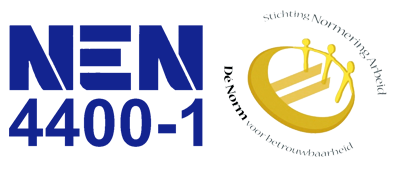Generations in the workplace: Different values and work ethics
In modern society, the job market typically encompasses four different generations: Baby Boomers, Generation X, Millennials, and Generation Z. Each generation has been shaped by unique historical events, technological advancements, and cultural shifts, leading to varying values and work ethics. Understanding these differences is essential for successful collaboration and the creation of an inclusive work environment.
Baby Boomers
Baby Boomers (1946-1964) grew up during a period of economic growth and stability after World War II. They value hard work, loyalty to their employers, and often pursue a linear career progression. For Baby Boomers, a 9-to-5 workweek and traditional hierarchy are central. They tend to keep work and personal life strictly separate.
Generation X
Generation X (1965-1980) experienced the transition into the digital revolution, making them more independent and adaptable in their work. They have a healthy skepticism of authority and a strong desire for work-life balance. This generation values autonomy and diversity in the workplace, and they are willing to invest in their own professional development.
Millennials
Millennials (1981-1996) are the first generation to grow up with technology and social media. They are idealistic and seek meaningful work, placing a high value on personal growth and development. This generation is not afraid to change jobs if they don’t connect with the company culture or can’t pursue their passions at work. They expect continuous feedback and transparency from their employers.
Generation Z
Generation Z (1997 and later) is the youngest generation in the job market, known for their digital literacy and entrepreneurial spirit. They are accustomed to rapid change and are often skilled at multitasking. This generation has a strong sense of social responsibility and diversity, and they are aware of technology’s impact on the world. A key characteristic of this generation is their intrinsic motivation. They prefer independent and flexible work, focusing on outcomes rather than tasks. Maintaining a healthy work-life balance is crucial for Generation Z.
Bridging generational differences
Understanding these generational differences is crucial for creating a harmonious work environment. Here are some ways organizations can address this diversity:
- Flexibility in Employment Terms: Offer various options for working hours and locations to meet the needs of diverse generations.
- Mentorship Programs: Encourage intergenerational collaboration, where older employees share their experience with younger colleagues, and vice versa.
- Personal Development: Invest in training opportunities and career planning to boost employee engagement, especially among Millennials and Generation Z.
- Value-Based Leadership: Business leaders can acknowledge their employees’ values and incorporate them into company culture and decision-making.
- Diversity and Inclusion: Create an environment where everyone, regardless of their generation, feels valued and respected.
Benefits of diverse generations
Generational differences can lead to enrichment and innovation in the workplace when managed effectively. Organizations that embrace and leverage this diversity can benefit from a broader range of perspectives and talents. It’s essential to promote open communication and allow space for individual growth and development within the organization’s goals. This enables generations to collaborate and learn from each other, ultimately creating a more productive and inclusive work environment.






